All Stories
-
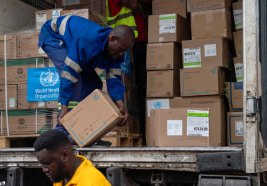 Health & Medicine
Health & MedicineHere’s how public health fared in 2024
Viral outbreaks, extreme heat and access to clean water are among the year’s big public health headlines.
-
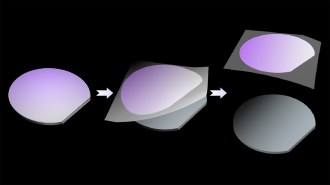 Materials Science
Materials ScienceScotch tape is key to creating thin films of diamond
The sticky stuff helped peel sheets of diamond less than a micrometer thick off silicon wafers, creating membranes useful for electronic devices.
-
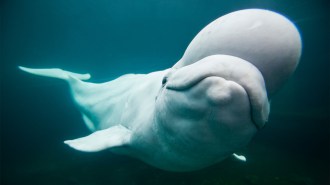 Life
LifeThese are our favorite animal stories of 2024
Pigeons that do somersaults, snakes that fake death with extra flair and surprised canines are among the organisms that enthralled the Science News staff.
-
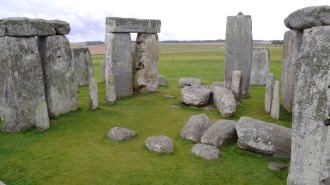 Archaeology
ArchaeologyArchaeology’s top discoveries of 2024 include preserved brains and a lost city
From the plight of ancient Egyptian scribes to the identities of ancient Maya sacrifices, 2024 brought a rich medley of insights into human history.
-
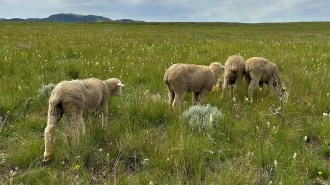 Life
LifeSheep earwax can record a dangerous diet
Sheep that eat death camas plants record the toxic meal in their earwax, a goopy health data repository that researchers are increasingly exploring.
By Jake Buehler -
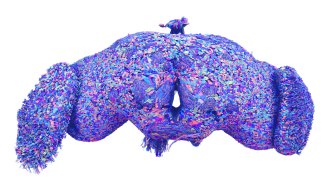 Life
LifeHere are 8 remarkable scientific firsts of 2024
Making panda stem cells, mapping a fruit fly’s brain and witnessing a black hole wake up were among the biggest achievements of the year.
-
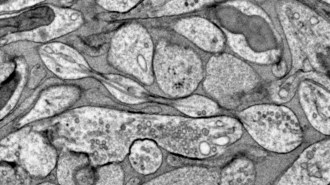 Neuroscience
NeuroscienceThe message-sending part of neurons may be blobby, not smooth
Axons can be shaped like strings of pearls, research in mice and people show. How that shape may influence brain signaling is not yet clear.
-
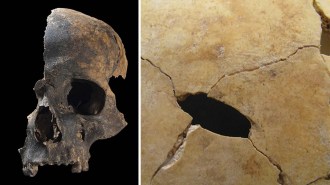 Anthropology
AnthropologyBritain’s largest ancient massacre may have included cannibalism
Bones recovered from a natural shaft unveil a 4,000-year-old massacre of men, women and children, possibly part of a cycle of revenge killings.
By Bruce Bower -
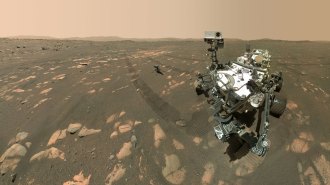 Space
SpaceThese discoveries in 2024 could be groundbreaking — if they’re true
Did microbes ever live on Mars? Did an "elevator" help build Egypt’s first pyramid? Some signs pointed to yes this year, but confirmation is still needed.
-
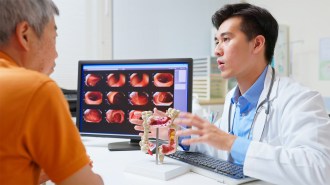 Health & Medicine
Health & MedicineCancer screening and quitting smoking have saved nearly 6 million lives
Prevention, screening and treatment advances combined stopped 5.94 million deaths from cancer in the United States from 1975 through 2020.
-
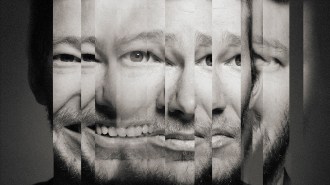 Anthropology
AnthropologyHumans have linked emotions to the same body parts for 3,000 years
3,000-year-old clay tablets show that some associations between emotion and parts of the body have remained the same for millennia.
By Jason Bittel -
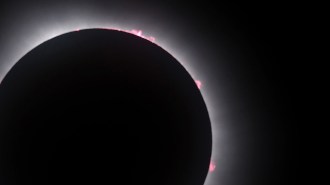 Space
SpaceThe 2024 eclipse gave a rare view of the sun. Here’s a peek at early data
Teams are starting to analyze data from the total solar eclipse to learn more about the sun’s corona, gravity waves and changes in Earth’s ionosphere.